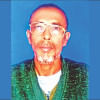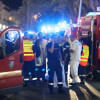Concern over 'worsening' freedom of expression
Expressing concern over the “worsening” state of freedom of expression in Bangladesh, the International Publishers Association (IPA) yesterday said the government played an “ambiguous” role in dealing with the killing of bloggers, writers and publishers.
“We feel the government has been ambiguous in its response. In 2013, after the killing of the first blogger, the government formed a special committee to name and investigate bloggers and writers instead of finding out the perpetrators,” said Ben Steward, director of Communication and Freedom to Publish of the IPA.
He suggested the government be more critical while dealing with the killings of bloggers and writers.
Steward was addressing an international seminar on “Publishing in a Free World” jointly organised by the National Book Centre of the ministry of cultural affairs and the Academic and Creative Publishers Association of Bangladesh (ACPAB) at the Pan Pacific Sonargaon Hotel.
The two-day seminar concludes today.
Founded in 1896, and based in Geneva, Switzerland, the IPA represents more than 60 associations in 50-plus countries, including the ACPAB, on all aspects of book and journal publishing.
Steward said the IPA recently joined forces with 15 NGOs, including PEN Bangladesh, PEN International, and Reporters Without Borders, that are equally worried about Bangladesh over its freedom of expression and freedom to publish “to urge the United Nations to concentrate more effort in the country.”
“The UN Human Rights Council -- of which Bangladesh is a member -- is currently meeting in Geneva for its 32nd sitting, which includes discussion of a statement that we have jointly submitted.
“That text asks the Human Rights Council to press to press the government of Bangladesh to take urgent, concrete steps to address the worsening conditions that are strangling freedom of expression in this country,” he said.
Professor Emeritus Dr Anisuzzaman said bloggers and publishers were killed for their views.
“In Bangladesh, majority of the people express their views against narrow-mindedness and bigotry, and I think any sensible man anywhere will join hands to stop these,” he said.
He hoped that free thinking would triumph over.
Richard Charkin, president of the IPA, said that freedom of expression around the world faces threats from the governments and misguided ideologists.
HT Imam, adviser to the prime minister, said the government is liberal in regard to freedom of expression.
“Everyone has a right to talk, publish. I always personally believe that there is a distinction between liberty and licence,” he said, adding that one must not attack other people's sentiment in the name of liberty.
Aktari Mamtaz, secretary of the ministry of cultural affairs, Osman Gani, president of the ACPAB, and Mohammad Aktaruzzaman, director of the National Book Centre, among others, also spoke.

 For all latest news, follow The Daily Star's Google News channel.
For all latest news, follow The Daily Star's Google News channel. 







Comments